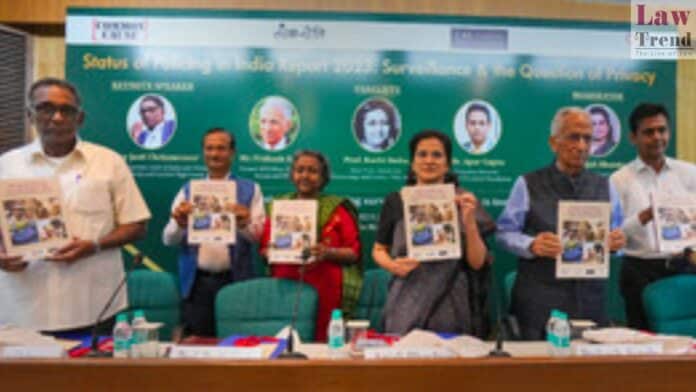Observing that surveillance by State is “unacceptable unless absolutely necessary” in larger public interest, former Supreme Court judge J Chelameswar on Friday said there was a greater need to exert “democratic pressure” on lawmakers and Parliament to create a rational legal system to regulate monitoring of citizens.
Justice Chelameswar said the State has reasons to keep surveillance depending upon the situations, but there should be “an amount of transparency in the process”.
He was speaking at a function organised by NGO Common Cause and the Centre for the Study of Developing Societies (CSDS) to release the report ‘Status of Policing in India Report 2023: Surveillance and the Question of Privacy’.
On surveillance and abuse of probe agencies, especially the Central Bureau of Investigation (CBI), the former judge said this menace is irrespective of political parties in power and the party, which is shouting hoarse now, did nothing to create a system to curb the abuse of central probe agencies for 40 years.
“When I talk about governments, I do not talk about any political party. Whichever political party is in the government, there is a change in the hardware, software is the same. Everybody follows the same practices,” he said.
“Of late, we hear a lot of complaints of the abuse of governmental agencies, particularly the CBI. And, the political party, which is shouting hoarse on the misuse of the CBI now, managed this country for almost 40 years before that. They never bothered to put this CBI on any more stable and statutory and rational basis and today, they find that the present dispensation is abusing this. This is the matter of opinion. I am not going into it,” he said.
Chelameswar said the State has reasons to collect data and keep surveillance on certain classes of individuals or groups depending upon the situations, but there should be an amount of transparency in the process.
“The question is when the state is collecting the data for whatever reasons, is there an amount of transparency in the process…whether it is meant for the welfare of the people… ultimately any act of the State is required to be meant for the welfare of people of the country,” he said.
Referring to the infamous spat, during the previous UPA regime, involving two senior cabinet ministers over allegations of bugging of an office, Justice Chelameswar said one of the ministers was no more and added that the “surveillance is unacceptable unless established that they are absolutely in the larger public interest”.
“These things are unacceptable unless established that they are absolutely in the larger public interest. The establishment of such a fact that this activity is required in the larger public interest depends on the existence of verifiable data, recorded material by persons who are resorting to this kind of surveillance. The requirement is to create such a legal regime,” he said.
The former SC judge added that “unfortunately”, the old Telegraph Act is being amended.
“I was joking to my friend here that this is the progress that we have made on the ‘Amrit Mahotsav’ of the Azadi’. You have changed the name, not the content. From 1874 to 2023… 150 years or so, I think the requirement is more to exert the democratic pressure on the lawmakers to create more rational legal systems to regulate this kind of activity in this country,” he added.
He said rapid progress has been made in artificial intelligence and bio-technology, which are going to change the world beyond all recognition.
“With this kind of state of affairs and progress of technology, the problem of surveillance becomes more and more intense. It is simply possible because all of us are voluntarily giving data to the State..,” he said.
Responding to a finding in the report that an increase or decrease of CCTV cameras does not affect the number of crime, Justice Chelameswar said the problem is not with the camera but how the data is utilised by investigative agencies.
“If the investigative agencies do not make proper use of the data collected by CCTV or if they are not efficient in using them, the crime rate will obviously not come down,” he said.




